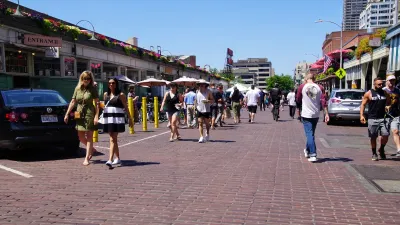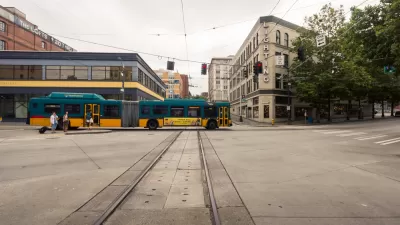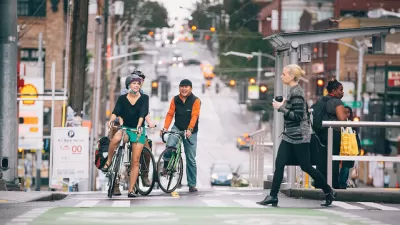Acknowledging that rising sea levels are a major concern for waterfront cities in Washington, the Municipal Research and Services Center (MRSC) non-profit put together a review of the current policy and planning efforts to meet the challenge.
"In Washington State, sea level projections estimate a middle range rise of about 2.6 inches by 2030, about 6.5 inches by 2050, and about 24 inches by 2100," reports Carol Tobin. In response to the expected impacts of the rising water level along the state's Pacific Ocean coastline and around Puget Sound, many communities have already begun planning for the inevitable.
A few examples of the Washington communities that have begun to factor sea level change into their comprehensive planning and public works programming, as shared by Tobin:
- "Olympia has studied the impacts of sea level rise on the downtown and infrastructure and has been working to address inundation of Budd Inlet and Capitol Lake shorelines and pipe backflow flooding. Sea level rise is addressed in the city’s recently adopted shoreline master program and in the current comprehensive plan update."
- "Seattle has mapped areas that are most vulnerable to sea level rise. King County has assessed the vulnerability of major wastewater facilities to flooding from sea level rise and has included adaptation policies in its Strategic Climate Action Plan (2012)."
- "The Gorst Watershed Subarea Plan, prepared by Bremerton and Kitsap County, recommends adaptation measures to account for sea level rise in the design of buildings and impervious areas, as well as roadway, flood management, and utility facilities."
Before concluding with a call to action, the article also lists planning tools, regulatory approaches, spending ideas, and leadership opportunities for how communities can begin preparing for sea level rise.
FULL STORY: Sea Level Rise: A Challenge for Washington’s Coastal Communities

Planetizen Federal Action Tracker
A weekly monitor of how Trump’s orders and actions are impacting planners and planning in America.

Restaurant Patios Were a Pandemic Win — Why Were They so Hard to Keep?
Social distancing requirements and changes in travel patterns prompted cities to pilot new uses for street and sidewalk space. Then it got complicated.

Map: Where Senate Republicans Want to Sell Your Public Lands
For public land advocates, the Senate Republicans’ proposal to sell millions of acres of public land in the West is “the biggest fight of their careers.”

Maui's Vacation Rental Debate Turns Ugly
Verbal attacks, misinformation campaigns and fistfights plague a high-stakes debate to convert thousands of vacation rentals into long-term housing.

San Francisco Suspends Traffic Calming Amidst Record Deaths
Citing “a challenging fiscal landscape,” the city will cease the program on the heels of 42 traffic deaths, including 24 pedestrians.

California Homeless Arrests, Citations Spike After Ruling
An investigation reveals that anti-homeless actions increased up to 500% after Grants Pass v. Johnson — even in cities claiming no policy change.
Urban Design for Planners 1: Software Tools
This six-course series explores essential urban design concepts using open source software and equips planners with the tools they need to participate fully in the urban design process.
Planning for Universal Design
Learn the tools for implementing Universal Design in planning regulations.
Heyer Gruel & Associates PA
JM Goldson LLC
Custer County Colorado
City of Camden Redevelopment Agency
City of Astoria
Transportation Research & Education Center (TREC) at Portland State University
Camden Redevelopment Agency
City of Claremont
Municipality of Princeton (NJ)





























